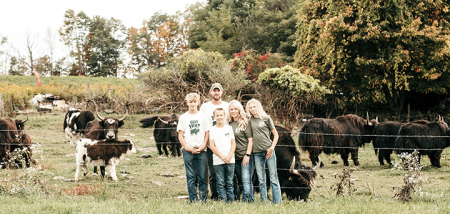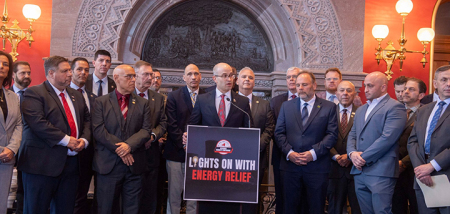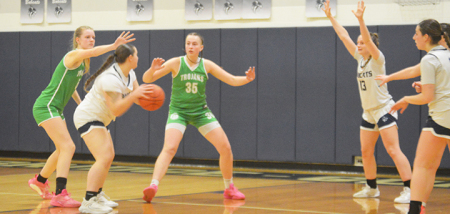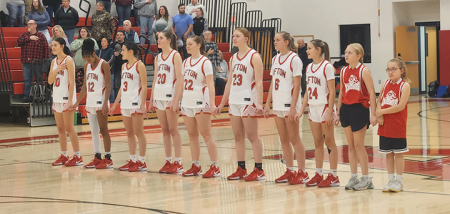Explore Nature This Spring With The Rogers Center
Published:
March 28th, 2023
By:
Sarah Genter
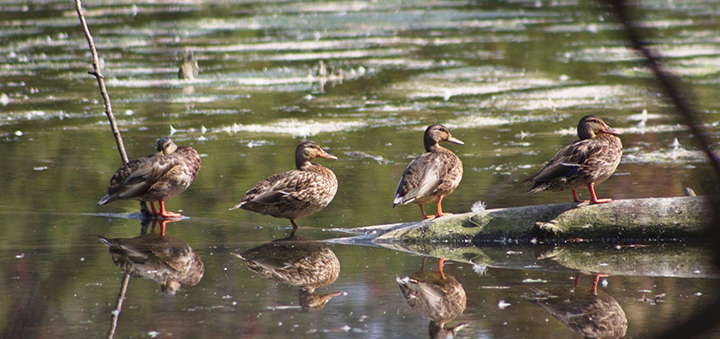 Ducks enjoying the sun on a pond at Rogers Environmental Education Center. Join Rogers Environmental Educator Ellen Rathbone at 10 a.m. on Saturday, April 8 for "Phenology Phenomena," a workshop that teaches the study of rural natural cycles and how to keep logs of nature observations throughout the year. (Photo by Sarah Genter)
Ducks enjoying the sun on a pond at Rogers Environmental Education Center. Join Rogers Environmental Educator Ellen Rathbone at 10 a.m. on Saturday, April 8 for "Phenology Phenomena," a workshop that teaches the study of rural natural cycles and how to keep logs of nature observations throughout the year. (Photo by Sarah Genter)
SHERBURNE — Friends of Rogers Environmental Education Center is encouraging Chenango County residents to get outside and explore nature this spring with several programs and events.
On Saturday, April 8 at 10 a.m., Rogers Environmental Educator Ellen Rathbone will be hosting a free, family-friendly workshop called "Phenology Phenomena" at the Rogers Environmental Education Center, located at 2721 State Highway 80 in Sherburne.
"People go out and they record when they saw their first mourning cloak butterfly, when the spring beauty first opened, when the buds are swelling on the maple trees, and they keep track of these, and this is how we know over time that things are happening much earlier than they did historically because of climate change," Rathbone explained. "So that’s what phenology is, it’s tracking the seasonal changes of the natural world."
The program is sponsored by the Otis Thompson Foundation, and will last about an hour and a half long. To register, contact Rathbone at 607-674-4733 or ellen@friendsofrogers.org.
Rathbone said the workshop will include a mix of classroom-like instruction as well as hands-on learning, where participants will get to explore Rogers Center and log any early signs of spring they see.
"What we’re going to be doing is teaching people how they can start to track their local phenology on their own and build their own knowledge of the regional natural cycles," said Rathbone. "We’ll probably talk about nature journaling, how to keep your own records if you want to do that and just record it in a journal, or if you want to have your own database of when the flowers start blooming."
"We’ll give them some background information, how they can do that, and then we’re going to head out and go for a walk and see what we can find that are some of the earliest signs of spring," she continued. "So like the other day we had turtles out basking. Go figure. So that would go into our phenology records here at Rogers: ‘first turtles basking of the season on March whatever day it was.’ So that’s the kind of thing that we’ll be talking about and encouraging people to start to track on their own."
Rathbone said she'll also probably introduce attendees to iNaturalist, a smartphone and computer app that allows individuals to photograph and record things they encounter in nature. All uploads to iNaturalist are uploaded to a worldwide database that is accessible by researchers, which helps them to further track phenology across the globe.
The study of phenology and tracking of natural cycles can provide insight into how climate change is impacting wildlife and plant life over the years.
Rathbone said through phenology it's been discovered that birds are migrating earlier than they used to, meaning they reach their nesting grounds too early in the season, when insects have not yet emerged. Unfortunately, this means the birds don't have anything to feed their young, which in turn may starve.
"On the other hand, our plants maybe are blooming sooner. I know a few years ago when I was in Michigan we had a really, really warm late winter, like it was in the 80s in February," said Rathbone. "The cherries and everything bloomed real early, and then they got hit with an ice storm, and so that year forget the cherries of northern Michigan because the trees were devastated by the weather, because they bloomed too soon. So they lost their crop that year."
"So there’s a lot of stuff that ties into this, and we know these things because of phenological records that have been kept for hundreds of years," she added.
In addition to the workshop on phenology, Rogers will also be hosting their monthly Second Sunday Scribblers the following day, Sunday, April 9 from 1 to 3 p.m. at Rogers Center. Second Sunday Scribblers is all about nature journaling, which ties in well with the study of phenology.
"You go out with your notebook and you record your observations of nature," Rathbone explained. "Some people are writers, and they write an awful lot. So, ‘I’m out here today and I see, oh gosh, there's a little critter moving underneath the feeders, and I’m looking at it and, oh, it looks like this, and it sounds like that, and I believe it’s a short tailed shrew,’ and just start recording their observations."
"Other people are artists, or like to sketch, and so they put a lot of illustrations in their journals. The ideal mix is to have a little bit of both," she continued. "You’re recording in a notebook the things you are exposed to there out in nature. Some people like to bring in quotes, others are very philosophical about it, some people are very clinical about it and just list what they saw that day."
Ultimately, she said there is no wrong way to journal about nature. At the end of Second Sunday Scribblers, participants will share what they observed out in nature that day.
Beginning at 10 a.m. on Monday, April 3, Rogers will introduce their new Monday Morning Ramble series, an hour-and-a-half guided nature walk held every Monday morning. Rathbone said most of them will be held at Rogers Center, but some are planned for other locations in the area.
Rogers will also hold their annual Earth Day Celebration on April 22, and from April 28 to May 1 they'll be participating in the City Nature Challenge, a worldwide competition that aims to record what's happening in nature at that time.
"You take pictures of plants, insects, fish, birds, mammals, whatever, and it gets uploaded to iNaturalist," said Rathbone. "It’s kind of a friendly competition to see who can find the most number of species and record the most number of observations."
The Rogers Center will be hosting a central New York project for the competition, which includes Madison, Chenango, and Otsego Counties. Rathbone said anyone in those counties can participate from April 28 to May 1, and all observations uploaded to iNaturalist will be automatically added to the central New York tally.
Overall, Rathbone said whether individuals attend the programs at Rogers or not, she just wants more people to get outside and experience nature.
"Get out there and experience nature. Nothing beats it, and quite honestly, you know, we need to rebuild that connection with what’s out there. A phrase that I keep using these days is, ‘we are a part of nature, not apart from it,’ and we really need to get people reconnected with that," she said. "You don’t have to come out for a program, just go out on your own. So get out there and enjoy it, and breathe the fresh air, and see what’s happening with your fellow creatures on this spaceship we call earth."
For more information on Friends of Rogers and their upcoming programs, visit FriendsofRogers.org or the Friends of Rogers Environmental Education Center, Inc. Facebook page.
Author: Sarah Genter - More From This Author
Comments
